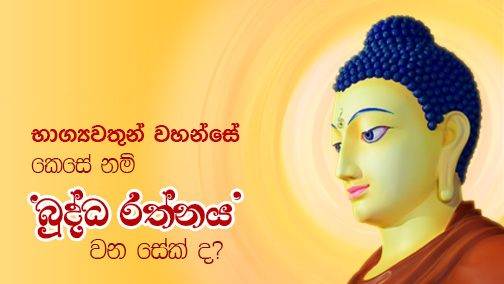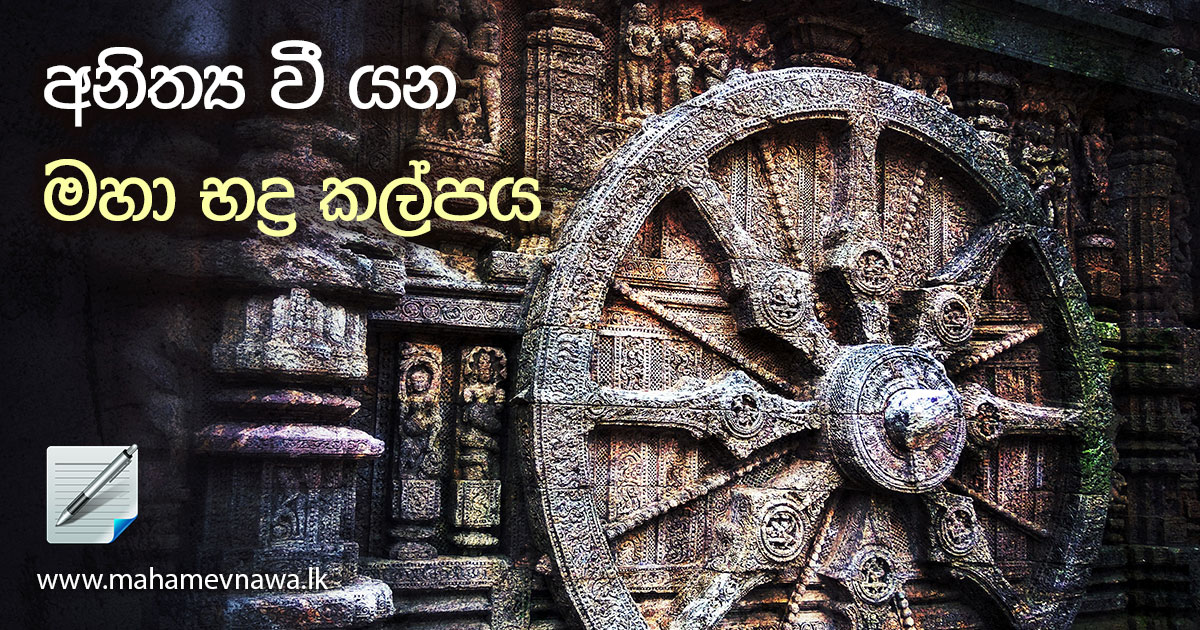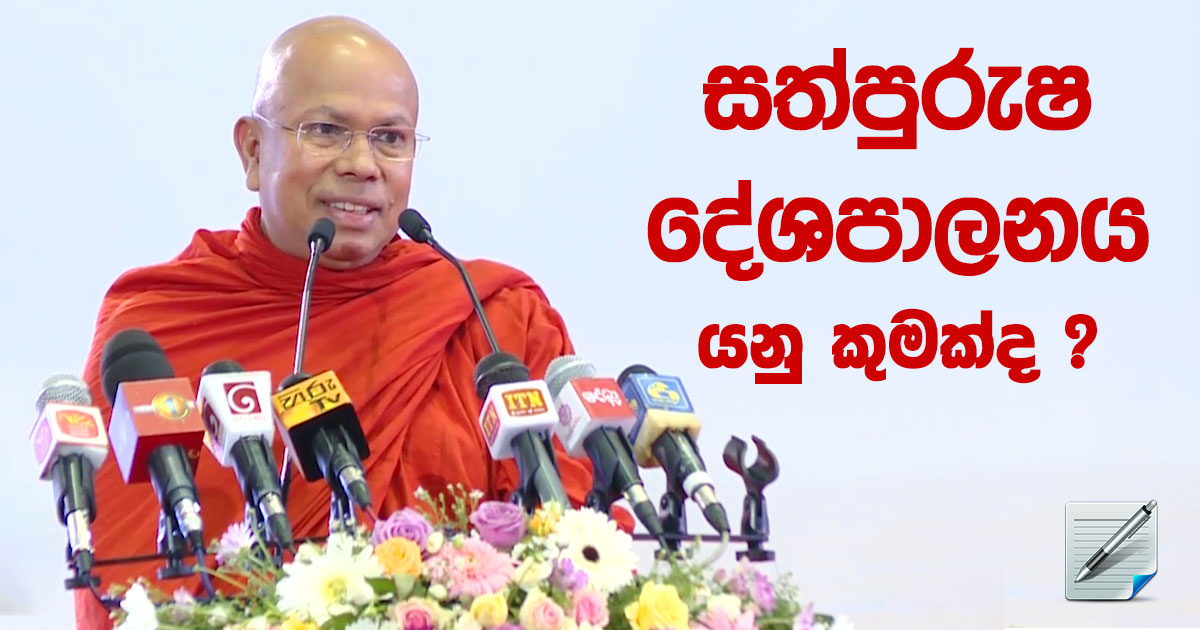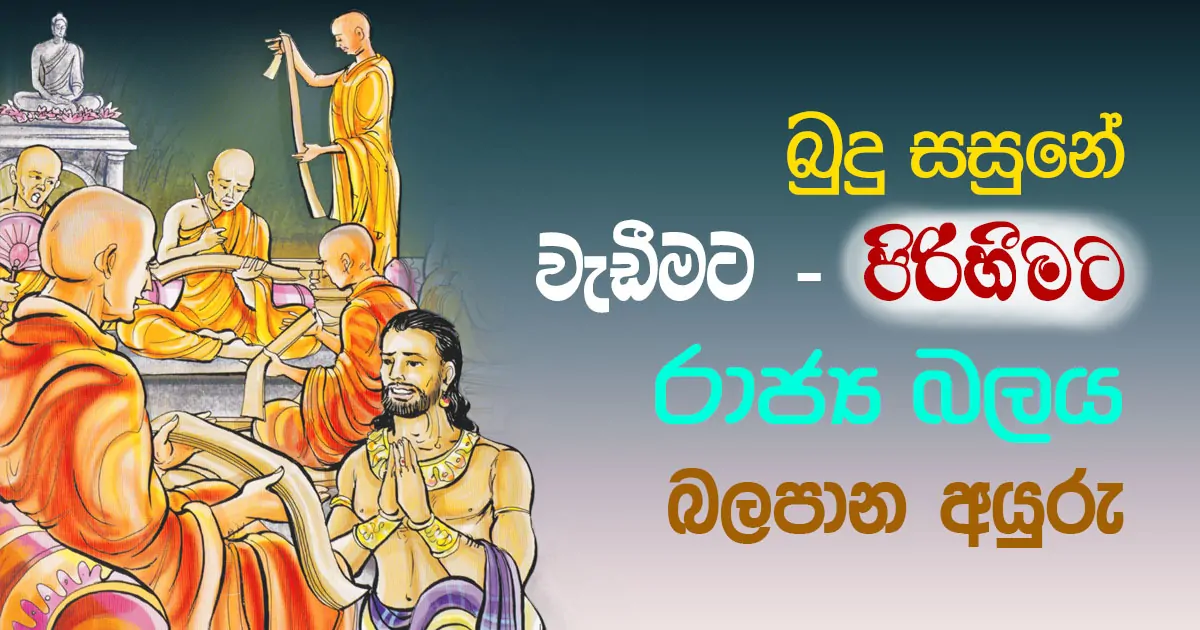The Buddha’s disciples are genuinely faithful towards the Triple Gem. They are also wise, brave, and dignified. The disciples of the Buddha do not inherit weak or baseborn, destitute, and cowardly characters that would make them bow in front of other religions or false views. They do not share the false pretense of grasping every belief as true and slip away from the truth.
Attacks by the other religions to Buddhism were more prominent over the past than in the present. Profane religious leaders like Niganhdha Nāthaputta always tried to make the Buddhists weak. But, they could not succeed in their disgraceful expectations. The one and only reason for their failure was the inner strength of the Buddhists that led them to be stern believers in the Buddha’s teachings like a steady post, which stands against a storm without getting destroyed.
We need disciples of both in laity and clergy with such valor in contrast to people who would follow horoscopes and asterism, and live in fear offering trays of fruits and praying to deities in temples. These types of people who would run around praying gods to find emancipation are useless to the country as well as to themselves. If a disciple would act like puppets in front of other religious ministers without a strong backbone, then they will bring harm to the country’s Order of the Buddha rather than blessings.
There is an exemplary incidence reported in the Nigandha Sutta in Chitta Sanukka of the sacred text of Sanukka Nikaya. It contains a dignified character of a disciple of the Supreme Buddha.
His name was Chitta. He was the wisest of all lay disciples of the Buddha. He had realized the Dhamma up to the third fruition (Anāghāmi state) in the path to Nirvana. His knowledge of the Dhamma was tremendous. He lived in the village called ‘Maccikāsandha’.
On one day, Niganhdga Nāthaputta came to this village with his pupils. The devotee Chitta also went to see Niganhdga Nāthaputta. At that time, Niganhdga Nāthaputta asked Chitta a remarkable question.
“Do you believe that there is a concentration of the mind or Samādhi free of Vichāra (investigation of thoughts)?”
One thing is apparent from this question; Niganhdga Nāthaputta did not accept even the second state of concentration of mind or Dhyāna (contemplation). The thoughts and investigation of thoughts (Vitakka and Vichāra) are alleviated in the second Dhyāna.
Niganhdga Nāthaputta was trapped by the answer that the devotee Chitta gave him.
“Dear Sir, I don’t believe in the fact that there is a Samādhi free of Vichāra or a cessation of Vitakka and Vichāra merely by my faith towards the Supreme Buddha. “
Niganhdga Nāthaputta was thrilled by Chitta’s answer and laughed loudly. He cried out to his disciples.
“Dear disciples, see how honorable this Chitta is. See how frank and free of any deception this Chitta is. If someone thinks he should end the Vitakka and Vichāra, then he should also be able to fasten the wind by a net, and he should be able to stop the flowing water of the river Gangā by the grip of his hand.”
The devotee Chitta then asked the following question from Niganhdga Nāthaputta.
“OK Dear Sir. Which one of the wisdom and faith is most transcendent?”
“Dear devotee, it is the wisdom that’s most transcendent among them.”
“Dear Sir, I am capable to stay in the first state of contemplation (Pathama Dhyāna), which is free of passion and defilements and is consisted of happiness that arouse from leisure containing Vitakka and Vichāra. I can also reside in the second state of contemplation (Dutiya Dhyāna), which comprises of happiness arisen from the Samādhi that is free of Vitakka and Vichāra… I can also reside in the third state of contemplation (Thatiya Dhyāna)… fourth state of contemplation (Chatutta Dhyāna)… If I am capable of having all these four states of contemplation and know and see these Dhyāna clearly, what is the necessity for me to believe in another monk or a Brahmin because he says that ‘there is a Samādhi free of Vichāra or a cessation of Vitakka and Vichāra‘?
Niganhdga Nāthaputta became angry by that answer and started to shout.
“Hey! See how insincere, cunning, and deceptive this Chitta is.”
Devotee Chitta was not perturbed by his screaming. He answered the Niganhdga Nāthaputta calmly.
“Dear Sir, didn’t you just say that I am honorable, frank, and free of any deceptions? But, you are now saying that I am insincere, cunning, and deceptive.
Dear Sir, if what you said earlier is true, what you said later is then false. Dear Sir, if what you said later is true, what you said earlier is then false.
Dear Sir, there are ten questions that can be discussed in detail. If you could one day understand the meanings of these questions, you will come see me with your Niganhdga pupils.”
Devotee Chitta presented those ten questions as ‘one question, one topic, and one answer; two questions, two topics, and two answers; three questions, three topics, and three answers; four questions, four topics, and four answers; five questions, five topics, and five answers; six questions, six topics, and six answers; seven questions, seven topics, and seven answers; eight questions, eight topics, and eight answers; nine questions, nine topics, and nine answers; ten questions, ten topics, and ten answers’ and left the seat from where he was sitting.
Niganhdga Nāthaputta and his pupils were stunned and stayed still without any answer.
Be a devotee like Chitta. Be steady and brave in front of other religion believers and profane views and concepts. Show them clearly that you are a stern devotee who took the refuge in only the Triple Gem.
by Ven. Kiribathgoda Gnanananda Thero








